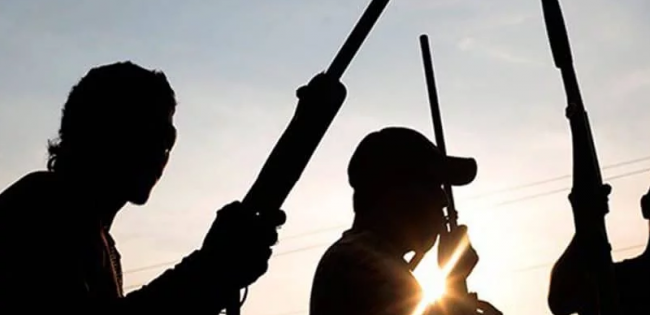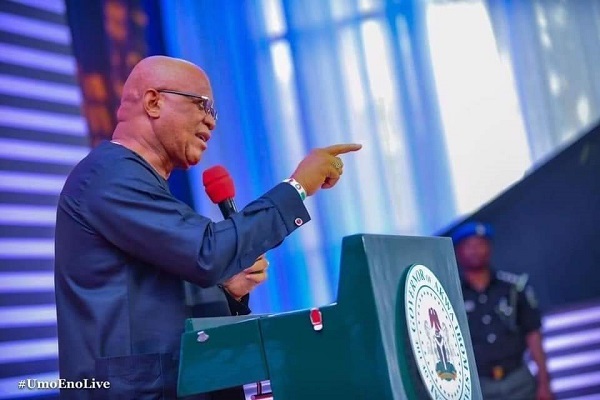Communities across Edo and Delta States in Nigeria’s South-South region are under siege as kidnappers armed with AK-47 rifles and operating with impunity have turned residents into human ATMs, extorting millions of naira daily from terrified families. The criminal enterprise, now booming, thrives on fear, violence, and a breakdown in security infrastructure.
Victims as Cash Machines
According to findings by NDV, abductors are no longer content with stealth operations — they now brazenly snatch victims and bark ransom demands to relatives, insisting on cash-only payments. Transfers are forbidden, and non-compliance often leads to fatal consequences.
A local source said:
“They don’t care if you are unemployed or a farmer. Once you’re kidnapped, they expect your family to pay — cash only — within their set deadline, or they kill.”
Kidnap Gangs Sprout Within Communities
Disturbingly, the kidnapping business is no longer limited to suspected Fulani herdsmen. In towns like Ubulu-Uku, Ogwashi-Uku, and Okpanam, local youths, some of whom are familiar faces, have reportedly formed gangs to terrorize their own people.
In a tragic case, a commercial motorcyclist who dropped off a priest in Ubulu-Uku was ambushed by masked kidnappers. He recognized one of them — a known villager — and called out his name. The kidnapper immediately shot him dead, and fled.
Community Pays, Police Deny
In Igueben, Edo State, a row broke out after the abduction of Enogie Friday Ehizogie on February 3. The Police claimed they rescued the monarch without ransom, but local lawmaker Eugene Inegbeboh revealed that the villagers raised and paid the ransom before his release.
“The Police did not rescue the Enogie. We paid ransom,” Inegbeboh insisted.
Kidnappings Across the Region: Ransom-Powered Freedom
- March 14, Ebedei Ukwole: A housewife, Anwuri Okoye (38), and her daughters were abducted. The abductors demanded ₦30 million.
- Edo State: Two kidnappers squeezed ₦10 million from a wealthy man and his mistress before release.
- March 11, Auchi: Suspects kidnapped Sunday Ajibola and his mother-in-law, receiving ₦10 million. Arrested suspects were caught with cash, SIM cards, machetes, and mobile phones.
- April 7, Issele-Uku–Asaba Road: Fulani gunmen abducted a doctor and his driver. The ransom was ₦15 million, jollof rice, chicken, and energy drinks. Delta Police later claimed to have neutralized the gang’s leader, “Shehu.”
- April 18, Ubulu-Uku: Two villagers held for two weeks were released after the community raised ₦10 million. The abductors had increased their demand from ₦5 million and also demanded razlers, black bullets, Indian hemp, malt, milk, and jollof rice.
- April 26, Auchi-Igarra Road: Labour Party’s Edo Ward 1 Chairman, Valentine Olowojoba, was kidnapped. Despite paying ₦5.3 million, the captors demanded more, calling the initial payment “feeding money.” He remains in captivity.
- May 9, Ibusa: Bright Azubike was abducted while buying fufu. His family paid ₦5 million plus food items. He was freed after four days.
- May 11, Ughelli: A woman abducted from her residence was released after her family paid ₦4 million.
Criminal Networks Busted — But Problems Persist
The Police in Delta and Edo states have arrested several suspects and recovered large sums of ransom cash, SIM cards, and weapons. However, the unrelenting wave of abductions suggests deeper issues: weak intelligence, community complicity, and under-resourced security operatives.
In one instance, Police arrested 26-year-old Lawal Tasiu in Asaba with ₦900,000, identified as part of the ransom paid for a kidnapped victim in Ibusa.
Communities Cry for Help
Across Edo and Delta, panic is spreading. Community leaders and families of victims are pleading with the state governments and security agencies to act decisively.
“We are worried and begging the government to rescue our brother. We’ve sold what we have. We can’t keep up with the kidnappers’ demands,” said Omozame Olowojoba, whose brother remains in captivity.
As the kidnapping trade flourishes, families continue to sell land, borrow money, and go into debt — just to see their loved ones again. Until comprehensive security reforms and grassroots intelligence are in place, the South-South may remain a hunting ground for Nigeria’s newest underworld economy.




